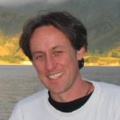Leverhulme Trust
Major Research Fellowships
- Award winner: Paul Henley
- Institution: University of Manchester
- Value: £141,361
The silent time machine: recovering early ethnographic film
- Award winner: Paul Heritage
- Institution: Queen Mary, University of London
- Value: £159,865
Brazil: art and progress
- Award winner: Christopher Johnson
- Institution: University of Nottingham
- Value: £100,638
Language, technology, aesthetics: the work of André Leroi-Gourhan
- Award winner: Jon Lawrence
- Institution: University of Cambridge
- Value: £104,038
The unmaking of the English working class: selfhood, possessions and politics
- Award winner: Moya Lloyd
- Institution: Loughborough University
- Value: £134,983
Who counts? The political problem of the ‘human’
- Award winner: Diane Richardson
- Institution: Newcastle University
- Value: £88,815
Transforming citizenship: sexuality, gender and citizenship struggles
Philip Leverhulme Prizes
Earth, Ocean and Atmospheric Sciences
- Award winner: Laura Robinson
- Institution: University of Bristol
- Value: £70,000
The use of chemical tools to examine ocean-climate linkages today and in the past
History of Art
- Award winner: Jo Applin
- Institution: University of York
- Value: £70,000
American and European art of the 1950s and 1960s
British Renal Society and British Kidney Patient Association
- Award winner: Shivani Sharma
- Institution: University of Hertfordshire
- Value: £19,633
Exploring the psychological distress of South Asian patients with kidney disease
Wellcome Trust
Investigators in Medical Humanities
The value of these awards ranges from approximately £500,000 to just over £1 million for up to five years
- Award winners: Simon Swain and Emilie Savage-Smith
- Institutions: University of Warwick and University of Oxford
A literary history of medicine: the best accounts of the classes of physicians by Ibn Abi Usaybi`ah (d. 10)
In detail

Research Project Grant: Humanities
- Award winner: Thomas Higham
- Institution: University of Oxford
- Value: £176,237
Modern human colonisation of Europe: chrono-cultural comparison of east and west
It was 45,000-35,000 years ago that our species, Homo sapiens, first appeared on the European continent. By the end of this period human hunter-gatherers could be found from Russia and Ukraine in the east to Britain, France and Iberia in the west. Years of excavations have yielded abundant archaeological material and decades of study mean we understand the basics of how our species came to conquer Europe. However, the details are incompletely understood for two main reasons: difficulty in establishing when events took place and differences between research methods in Eastern and Western Europe. This project aims to take a major step towards addressing these issues through study of the Kostenki complex of archaeological sites in European Russia. New radiocarbon dating techniques will be used to establish a reliable chronology and a collaborative study of stone tools will document and explain the similarities and differences between archaeology in Eastern and Western Europe.
Register to continue
Why register?
- Registration is free and only takes a moment
- Once registered, you can read 3 articles a month
- Sign up for our newsletter
Subscribe
Or subscribe for unlimited access to:
- Unlimited access to news, views, insights & reviews
- Digital editions
- Digital access to THE’s university and college rankings analysis
Already registered or a current subscriber?
